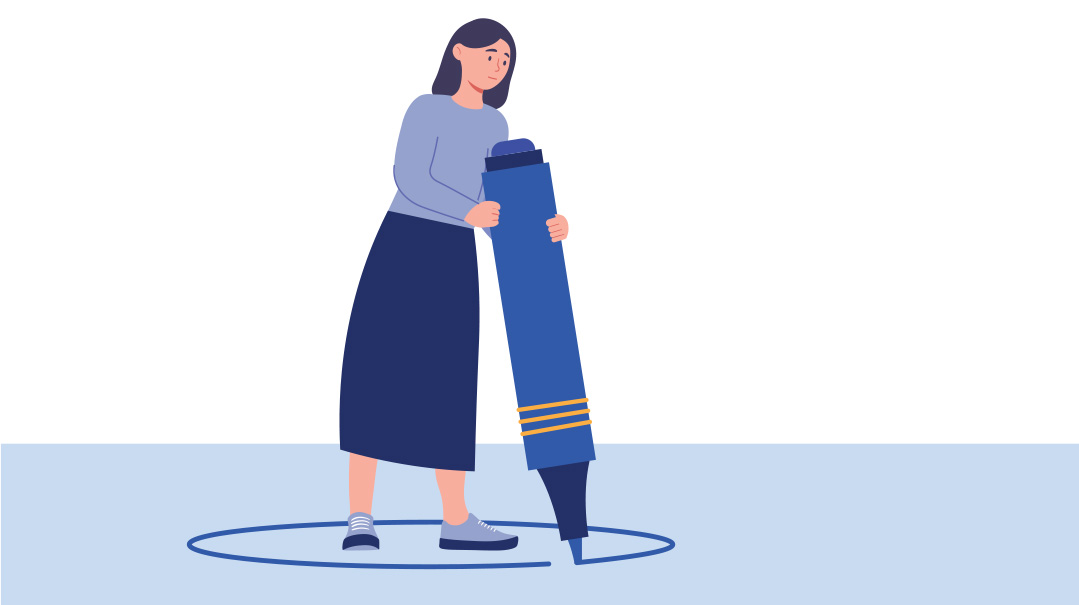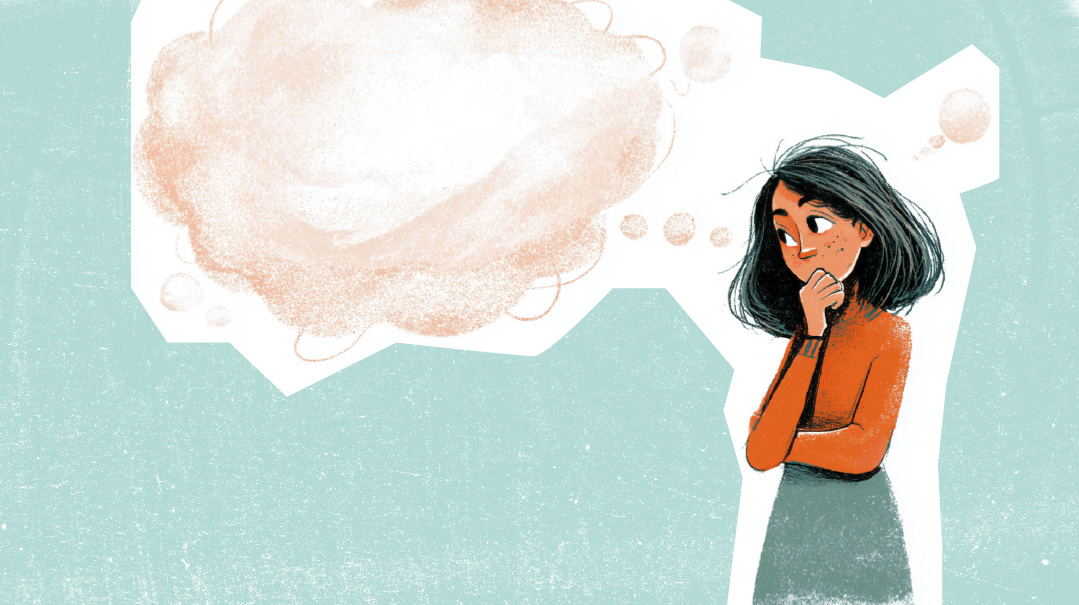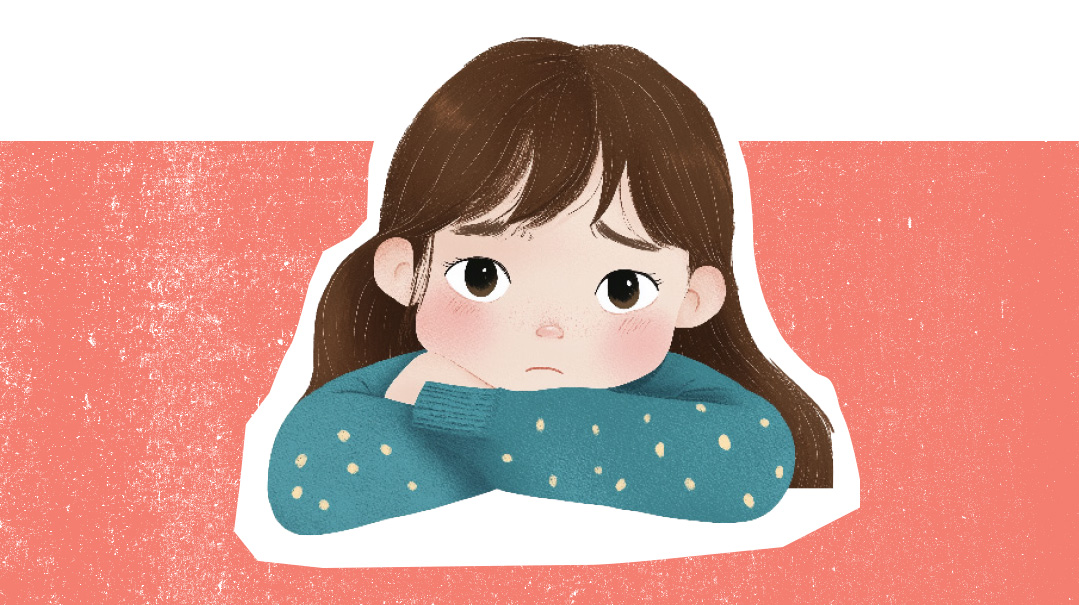Helpful Boundaries
| January 10, 2023“Helpful” does not mean inherently good or bad

Helpful Boundaries
Shoshana Schwartz
Filters are important in so many ways. A water filter strains out bacteria-laden particles while allowing the passage of life-sustaining water. In our bodies, the blood-brain barrier allows vital substances found in our blood to pass into our brains while keeping out toxins. And of course, there are filters for electronic devices. Clearly filters are not only necessary but positive.
A filter separates something that is helpful when brought inside a barrier from something that is unhelpful when brought inside. “Helpful” does not mean inherently good or bad. Helpful is contextual, with who, when, and where being the variables. Ongoing commentary about your driving is helpful from your driving instructor but decidedly unhelpful from your spouse. Wearing a coat to filter out the cold is useful in the winter, but unnecessary in the summer. Family suppers are wonderful, but aren’t a suitable setting for a conversation with your daughter about a shidduch that fell through.
We need to create filters that maximize our physical and mental well-being. This doesn’t mean I can control what other people do, say, or offer. It does mean that I choose what to allow inside me. In other words, a filter is a boundary.
Boundaries create physical or metaphysical space, filtering out things (or people) you don’t currently want inside that space. Your front door filters out who can enter (or exit, as filters can be multidirectional). Ear plugs filter out unwanted noise. Curtains filter out light and other visuals.
If boundaries are so beneficial, why are other people often hurt when they come up against one? Because it makes them uncomfortable. It forces them to work harder, find other solutions, deal with their own frustration or weakness.
While you might be okay with some people’s discomfort around your boundaries (your boss, sister, or neighbor), there might be others whose discomfort makes you squirm (your mother-in-law, husband, or children). Just as you need to set boundaries despite their discomfort, you need to do so despite your discomfort. Well-placed boundaries provide a feeling of safety, which is a prerequisite for emotional intimacy.
Researchers studied the effects of a playground fence on preschoolers during recess. They discovered that when no fence was present, children stayed close to their teacher, but when the playground was enclosed, the children felt free to explore their environment, playing right up to the fence.
Each time you thoughtfully establish a boundary, you are creating more clarity for where you end and others begin. You become more attuned to your authentic self, allowing yourself to be more real and more present. Establishing or maintaining boundaries may at times be uncomfortable and may sometimes necessitate internal or external negotiations. Yet they provide the freedom to safely exist and coexist in your environment.
“Boundaries are not barbed-wire fences, love. Boundaries are the poetry and prose that tell others how to love, respect, and connect with us. Boundaries are the choreography of our relationships, guiding the steps of our interactions. Boundaries are love in action.” – L.R. Knost
Shoshana Schwartz specializes in addiction and codependency. She gives in-person and online addiction prevention lectures and workshops to education and mental health professionals, community leaders, and parent groups, as well as 12-Step workshops for non-addicts.
Sign of Caring
Sara Eisemann
The most convincing sign that someone genuinely cares for you, is that they seek to understand you.
- SJG
I confess, this is not something I always knew. Had you asked me ten years ago how I know that someone cares about me, I might have answered things like, “They are there when I need them” or “There is nothing they won’t do for me” or “They anticipate my needs and do things to make me happy.” And I would have been right. These are all markers of someone who cares.
But I’ve come to appreciate the next level of emotional intimacy: the gift of being deeply understood. Some of the most beautiful moments between two people occur when one “gets” the other. Being seen in this way touches something profoundly deep in the soul and is remarkably healing.
The converse is equally true. My clients have taught me that not being understood is the worst kind of pain. Vulnerability is all the rage these days and everyone is on the bandwagon. But for those who are afraid to try, the reason is always the same. They would prefer to not share and be safe, than to share and risk not being understood.
When we are vulnerable, we are offering up the deepest part of ourselves. If that is not deeply received, the shame that results is staggering. It hurts to have our truth dismissed. It feels as though we are being dismissed, as though the deepest part of us does not exist. And so many people will not risk it. They pay the price of denying themselves intimacy in a relationship in exchange for safety.
We can’t always understand someone the way they want to be understood. But when we try, we show that knowing who they really are is important to us. I always recall the way my boys learned the translation of a pasuk in Chumash (Bereishis 18:19): “Ki yedaativ — because I know him,” and if I know him, it means I love him. Why do I love him? “L’ma’an asher yetzaveh es banav.” “Knowing” in the Chumash is always tied to loving.
If we want to truly connect, we need to not only take the time, but also to extend the willingness to see the other as they are and not as we need them to be.
Sara Eisemann, LMSW, ACSW, is a licensed therapist, Directed Dating coach and certified Core Mentor.
Moving On vs. Moving Forward
Sarah Rivkah Kohn
So often when people experience loss, be it a death, divorce, loss of health, or really any type of loss, they feel a societal pressure to “move on.”
The term can be misleading, though. Moving on implies that one needs to leave behind a previous life, whereas an appropriate goal would be to integrate the loss into the person’s life in a future-focused way.
As opposed to moving on, moving forward helps the person move into a fresh space along with all the previous stuff.
Sarah Rivkah Kohn is the founder and director of Zisel’s Links and Shlomie’s Club, an organization servicing children and teens who lost a parent.
(Originally featured in Family First, Issue 826)
Oops! We could not locate your form.







